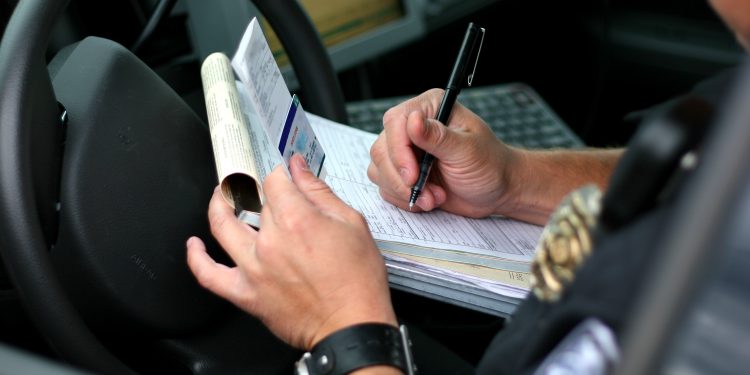A Georgia man’s day went from bad, to worse, to disastrous when he was pulled over for speeding and handed a fine that may at first have seemed like a typographical error.
Connor Cato was pulled over while driving through Savannah, Georgia, on Sept. 2 when the Georgia State Patrol officer said he clocked Cato going 90 mph on the highway, which was 35 MPH over the limit, according to the New York Post.
After he was pulled over, the Chatham County resident was astounded when he looked at his traffic ticket and saw that the fine was not $100, or even $1,000, but a hefty 1.4 million dollars.
Cato told WSAV-TV that he called the phone number on the ticket to ask if the amount was a typo. But he was assured it was not.
“‘$1.4 million,’ the lady told me on the phone. I said, ‘This might be a typo’ and she said, ‘No sir, you either pay the amount on the ticket or you come to court on Dec. 21 at 1:30 p.m.'”
Criminal defense attorney Sneh Patel said that the whole thing left him baffled.
‘Super speeder’ in Georgia gets ticket with $1.4 million fine amount https://t.co/E021yB4t1E
— Walter (@Walt_1967) October 16, 2023
“I mean I can’t imagine someone would have to pay $1.4 million for not showing up for a speeding ticket,” Patel said.
The attorney also said he had never seen any traffic incident like it before.
“At first when I was asked about this, I thought it was a clerical error. But then you told me you followed up and, apparently, it’s not a clerical error. But again, I have never seen something like this, ever,” told the media.
Patel noted that according to what he has dealt with in the past, one would never pay a traffic fine over the maximum penalty for traffic violations or misdemeanor charges in Georgia. And those fines only go up to a maximum of $1,000. Or $5,000 for a misdemeanor of a “high and aggravated” nature.
“Now, the bond amount should be relevant to that so for misdemeanor,” Patel went on, “you wouldn’t see bond amounts over $5,000 maybe $10,000 just to ensure if it’s a crime that involves violence or if you’re anticipating they will commit more crimes, it would set a higher amount or if you think they won’t show for court, you set a higher amount.”
But $1.4 million seems a bit over the top, Patel added.
“But not $1.4 million — that’s something that goes into cases that are drug trafficking, murders or aggravated assaults, something of that nature,” he said.
In the end, Cato and his attorney were relieved to find out that the county did not expect Cato or anyone else to pay this million-dollar fine.
It all has to do with how the court’s computer system works, the city of Savannah explained.
The million-dollar number was added by the e-citation software that has been used by the local Recorder’s Court since 2017. And that particularly high number is automatically applied to tickets issued to “super speeders,” who go way over the limit, said Joshua Peacock, a spokesman for Savannah’s city government, the Post reported.
In practice, the judge sets the actual fine, which, as Patel noted, would not exceed $1,000 plus court costs.
“We do not issue that placeholder as a threat to scare anybody into court, even if this person heard differently from somebody in our organization,” Peacock added.
“The programmers who designed the software used the largest number possible because super speeder tickets are a mandatory court appearance and do not have a fine amount attached to them when issued by police,” Peacock explained.
This article appeared originally on The Western Journal.


























 Continue with Google
Continue with Google